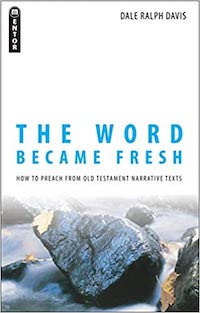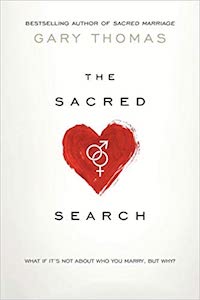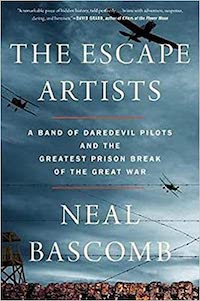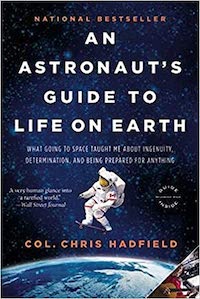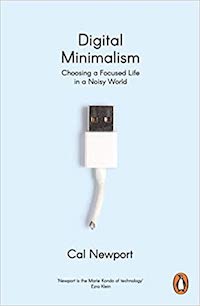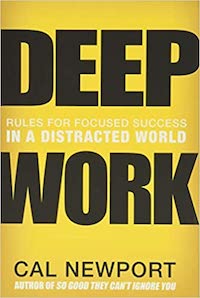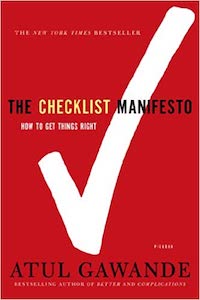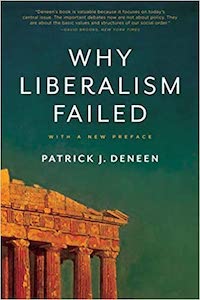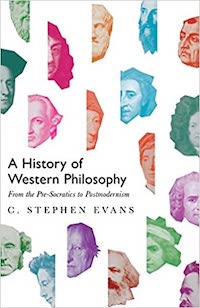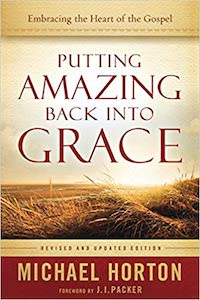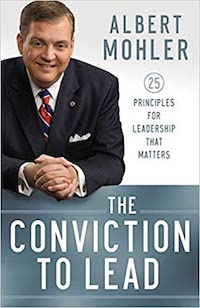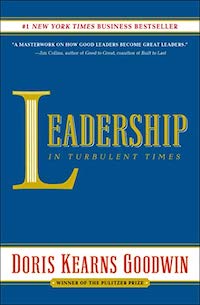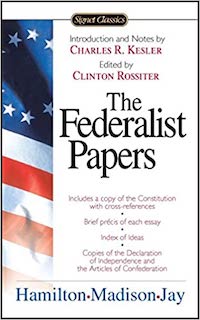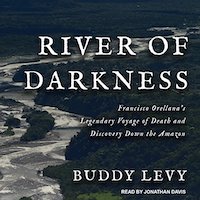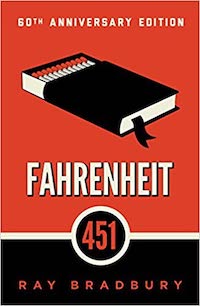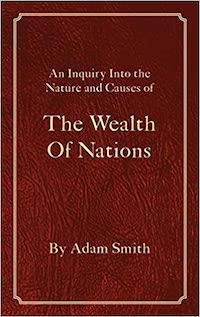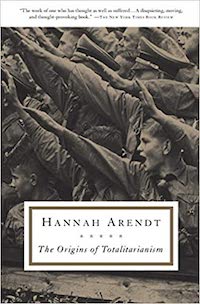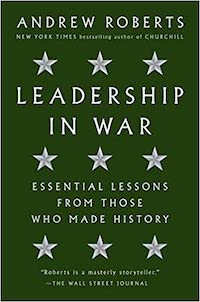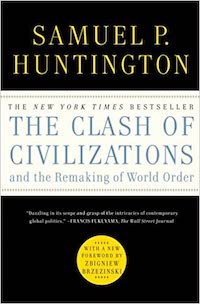
20 Books from 2020
Benjamin Franklin once quipped, ““If you would not be forgotten, as soon as you are dead and rotten, either write things worth reading, or do things worth writing.” His humorous remark summarizes most of my reading this year: classic books that have passed the test of time, and books about individuals who lived extraordinarily.
This year I set a new goal: to read one book a week. While I haven’t quite succeeded yet (hey, I still have about 10 days left!), it has been a worthwhile use of time and an incredible learning adventure. This year’s list of 20 books includes the best reads from my reading this year.
As always, I encourage you to create a reading list for the new year. Hopefully these books will provide some inspiration, and if you need more suggestions, check out my previous lists (15 books from 2015, 16 books from 2016, 17 books from 2017, 18 books from 2018, and 19 books from 2019).
A note on ratings: It is a well-known secret that most books on Amazon receive 4 or more stars. I am a much harsher critic. Here is the grading system that I use:
5 Stars: A book that is profound, paradigm-shaping, or exceptional in some way. Very few books ever receive five stars from me.
4.5 Stars: An excellent book that I would like to give five stars to – but I can’t quite describe it as ‘brilliant,’ ‘profound,’ or ‘life-changing.’ Still, I would highly recommend it to anyone!
4 Stars: A great book, worth reading, and significantly better than the average book.
3 Stars: An average book. If you are interested in the subject, you will find it useful.
2 Stars: Below average. It may have some good points, but probably not worth your time. Some people may find these books worth skimming.
1 Star: I find no reason to read this book, or even skim it. In fact, it isn’t even worth finishing.
A recommendation of any book on this website is not a complete endorsement. I try to alert readers to objectionable content, but I still recommend that readers use discretion in their reading.
Note: click the picture of the book to go to the Amazon page for it.
(1) A Supreme Desire to Please Him: The Spirituality of Adoniram Judson (5 Stars) E. D. Burns
As the only five-star book this year, A Supreme Desire to Please Him is life-changing in how it frames the Christian life. I already consider Judson to be a major influence in my life; this book showed that Judson’s great aim in life was ‘to please Christ.’ His simple faith in God allowed him to weather great challenges and trials, recognizing the sovereignty of God through them all. If you are not already familiar with his story, I recommend that you begin by reading To the Golden Shore; after reading that book, you will better appreciate this one. The first chapter began somewhat slowly; from then on, this book was pure gold.
(2) The Word Became Fresh: How to Preach from Old Testament Narrative Texts (4.5 Stars) Dale Ralph Davis
I’ve mentioned him before: everything that Dale Ralph Davis writes is worth reading. This quick introduction to Old Testament preaching is simple, straightforward, and downright fun to read (like everything else he writes). After reading his commentaries on 1 Kings (The Wisdom and the Folly) and 2 Kings (The Power and the Fury), this book was helpful to understand his teaching approach.
(3) The Sacred Search: What If It’s Not About Who You Marry, but Why? (4.5 Stars) Gary Thomas
A friend recommended this book as containing valuable insights, and I fully concur. I’ve recommended it to a few people already. In fact, I think this is a great book for single people to read before they enter a relationship, since it points out some significant pitfalls. Thomas’ point is simple: your goal in life is to ‘seek first the kingdom of God.’ Choose a person who will help you seek that goal.
(4) The Escape Artists: A Band of Daredevil Pilots and the Greatest Prison Break of the Great War (4.5 Stars) Neal Bascomb
During the First World War, captured officers were sent to special Prisoner-Of-War camps that offered them more comforts than the average soldier experienced. Many British officers felt that it was their duty to return to the fight, so they constantly tried to escape. This book is downright entertaining, and almost hilarious, as it describes the ingenious ways in which the officers tried, failed, and tried again to escape from their POW camps. This is a very enjoyable read, filled with excitement and suspense. Unlike many war books, I did not find it gruesome or gory – it is just a great story worth reading!
(5) An Astronaut’s Guide to Life on Earth: What Going to Space Taught Me About Ingenuity, Determination, and Being Prepared for Anything (4.5 Stars) Chris Hadfield
I sometimes refer to this as ‘the funnest book I read all year.’ Whether your interests lie in the realm of technology, outer space, science, big machines, adventure, or spaceships, this book has it all. Hadfield uses his unique experiences in space to pass on some valuable lessons (like ‘learn to sweat the small stuff’), but the book doesn’t read like a self-help book. It just draws you in through a combination of great writing and interesting stories.
(6) Digital Minimalism: Choosing a Focused Life in a Noisy World (4.5 Stars) Cal Newport
I’ve talked before about the dangers of the digital revolution (such as here, here, and here), but I think this book best answers the question, ‘how do we respond?’ Last year I read 12 Ways Your Phone Is Changing You, and while that book is good, I felt that the ‘solutions’ it provided were inadequate for the problem. This book, however, presents a full-fledged philosophy of how to use digital technology in a way that moves your life forward, rather than distracting you. I think anyone who uses such technology would benefit from this book.
(7) Deep Work: Rules for Focused Success in a Distracted World (4.5 Stars) Cal Newport
Cal Newport made my list twice this year. This book is simple in its suggestion, but radical compared to how most people think. In a world where we value ‘connectedness’ and instant communication, Newport argues that we need lots of distraction-free time in order to think clearly, focus intently, and do our best work.
(8) The Checklist Manifesto: How To Get Things Right (4 Stars) Atul Gawande
If you think about ‘dangerous jobs,’ medicine and aerospace have to be near the top: one tiny mistake can kill people. Gawande shows how a simple checklist – the sort of think you might tack onto your refrigerator – provides the solution. This book is short, easy to read, and challenges you to think about how you could use checklists to improve whatever you are doing.
(9) Why Liberalism Failed (4 Stars) Patrick Deneen
While we generally use the word ‘liberalism’ to refer to ‘the left,’ liberalism as a philosophy can include both the left and the right: it refers to a set of ideas that often include the autonomy of the individual, constitutional government, and human rights. Whether you are on the left or the right, it isn’t hard to see that liberalism has its problems: widening wealth gaps, expropriation of natural resources, an uneducated voter base, and large sections of society trapped in cycles of poverty and despair. This book asks ‘why,’ and controversially, argues that liberalism itself (both right-wing and left-wing) is the problem. I found this book challenging to read (it is not a light read) but thought-provoking. I’m still thinking through how much I agree with it, but it does present some very intriguing ideas.
(10) A History of Western Philosophy: From the Pre-Socratics to Postmodernism (4 Stars) C. Stephen Evans
Summarizing western philosophy is no small job. Even this book, with nearly 600 pages, barely manages to squeeze in all the highlights. However, it does an admirable job, presenting the main thinkers and their most significant ideas. The book is written from a Christian perspective, and while I certainly didn’t pick up everything in it during one read-through, I’m sure I will return to it as a great reference.
(11) Putting Amazing Back Into Grace: Embracing the Heart of the Gospel (4 Stars) Michael Horton
What was it that made the Reformation so remarkable? In the span of a few short years, Europe was radically changed, not merely as kings and countries changed their religious policies, but – more fundamentally – as common men and women were impelled to rethink the very meaning of the Gospel of Jesus Christ. But what was that message, and why is it so powerful? While I’m not in complete agreement with everything that Horton expresses, this book is an excellent, serious introduction to Reformed Theology and the Doctrines of Grace.
(12) The Conviction to Lead: 25 Principles for Leadership that Matters (4 Stars) Albert Mohler
Leadership is one of my favorite reading topics, and Mohler presents leadership as conviction-based. Leadership is not merely about moving people from one place to another; the Christian leader begins with serious convictions which impel him to lead others toward the truth. The 25 principles that this book expresses are practical and worth revisiting often.
(13) Leadership in Turbulent Times (4 Stars) Doris Kearns Goodwin
If we want to learn leadership, we should learn from those who did it well. Goodwin uses this book to tell the stories of four US Presidents: Abraham Lincoln, Theodore Roosevelt, Franklin Roosevelt, and Lyndon B. Johnson. Each of these men guided the country through periods of turmoil, and (whether you agree with their approaches or not), they demonstrate what effective leadership looks like. I found it engaging and filled with valuable lessons.
(14) The Federalist Papers (4 Stars) Hamilton, Madison, Jay
In 1788, after several years under The Articles of Confederation, Americans realized that they needed a better foundation. When the Constitution was written, however, it invoked much controversy. Did it give too much power to the federal government? Did it provide a better form of government? Were the states giving up too many rights? In the ensuing war of words, The Federalist Papers was written to explain the Constitution and why it is an ideal document for America. This is not an easy read; however, for those with the patience to read it, it shows the underlying thinking behind the Constitution and why that document has provided such a firm footing for American government.
(15) River of Darkness: Francisco Orellana’s Legendary Voyage of Death and Discovery Down the Amazon (4 Stars) Buddy Levy
Around 1541, Orellana set out from Spanish Peru to explore the interior of South America. Dreaming of vast empires of gold, the Spanish expedition soon found itself on the verge of starvation, fighting to survive in the vast unexplored reaches of the Amazon rainforest. This incredible tale tells of tribes and empires that no longer exist, desperate men fighting for survival, and a jungle that is among the most dangerous places in the world.
(16) Fahrenheit 451 (4 Stars) Ray Bradbury
Knowledge is powerful, which is why it is worth controlling. In Fahrenheit 451, Bradbury imagines a world where the job of firemen is to start fires and burn books. In order to maintain peace, humans are coddled with easy lives and uneventful existences; books must be banished because they make us think, question the existing order, and live remarkable lives. The book is an easy read, and it challenges you to remember the value of books. Reader discretion advised for some language.
(17) An Inquiry into the Nature and Causes of The Wealth of Nations (3.5 Stars) Adam Smith
When people ask me who Adam Smith is, I sometimes describe it this way: “Adam Smith is to Capitalism what Karl Marx is to Communism.” It isn’t quite the same, but in many ways, Smith is the great theorist of free markets and government deregulation. This book works through countless examples of how British government stifled, hampered, and harmed the British economy through its efforts to control trade. Smith’s approach is simple: let each man make the business decisions that are best for him, and in that way, business will flourish and the economy will improve. The forms of government interference are different nowadays, but the principle is just as valid. This book is a classic, but I was only able to give it 3.5 stars because it is excessively minute and very difficult to get through in many places.
(18) The Origins of Totalitarianism (3.5 Stars) Hannah Arendt
Not all forms of tyrannical government are totalitarian. Arendt posits that their have only been two significant examples in the world: Stalinist Russia and Nazi Germany. This book is an in-depth analysis of ‘pure’ totalitarianism. In fact, the book contains three sections: Antisemitism, Imperialism, and Totalitarianism. I found that the first two sections are hard to follow, but the third is both profound and terrifying. Totalitarianism is characterized by an uncontrolled desire for power in the world, coupled with a unique philosophy that seeks to remove complexity from the world. Together, it creates a system so powerful that absolutely nothing escapes from its destruction. Totalitarianism desires power for power’s sake, and requires no justification to do anything to anyone.
(19) Leadership in War: Essential Lessons from Those Who Made History (3.5 Stars) Andrew Roberts
Surveying nine war leaders from history, this book reveals the traits that make for excellent war leadership. Each individual is highlighted with a biographical account, along with some commentary about what made them unique. The author does not limit himself only to ‘good’ war leaders, but also touches on such unsavory characters as Hitler. I found the book enjoyable and interesting, but I would have enjoyed more commentary and analysis about what made them such great leaders.
(20) The Clash of Civilizations and the Remaking of World Order (3.5 Stars) Samuel Huntington
After the fall of the USSR, the US government needed a new way to understand the world. Previously, the world was divided into three blocs: the ‘first world’ that was lead by the United States, the ‘second world’ that was led by the USSR, and the ‘third world’ that was unaligned. How was the world to be divided now? In The Clash of Civilizations, Huntington lays out a new approach to foreign affairs. He argues that there are now eight major civilizations, and future world conflict exists where these civilizations are in hostility. This is a controversial book, and many people disagree. However, there is much to recommend about Huntington’s thesis: western civilization is mostly unified, and its new potential adversaries include China (which constitutes an entire ‘civilization’), Russia (another ‘civilization’) and parts of the Islamic Middle East (yet another ‘civilization’).


